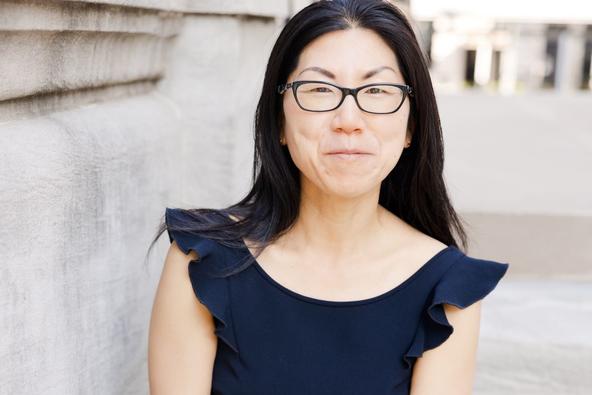UK Scholar’s New Book Explores Use of Open Systems Theory and Buddhist Concept of Mutual Causality in Museum Management

How can museums be more relevant to the local communities they serve? Museum expert Yuha Jung, of the University of Kentucky Department of Arts Administration, breaks down a clear path forward combining open systems theory and the Buddhist concept of mutual causality in her groundbreaking new book, “Transforming Museum Management: Evidence-based Change Through Open Systems Theory.”
As modern culture relentlessly moves forward, traditional museums must adapt and expand their audiences or be left behind as a relic of a bygone era. Breaking with old stale dogmas in favor of embracing more open and inclusive positions can be radically disruptive, but when managed successfully it can significantly increase the impact and longevity of museums. In that spirit, leading museum scholar, systems thinker, educator and author Yuha Jung, Ph.D., recently announced the release of her new book “Transforming Museum Management: Evidence-Based Change through Open Systems Theory,” which aims to widely transform the culture and approach taken by museums.
“Transforming Museum Management” is based on a longitudinal ethnographic study of a real-life mid-sized art museum. It chronicles this traditional museum’s struggles and successes in attempting to transform into a more inclusive and community-based institution.
“Museums must change to illuminate the histories, cultures and social issues that matter to their local population,” Jung said. “I believe open systems theory and the Buddhist concept of mutual causality can be valuable tools in this type of important struggle.”
The idea of mutual causality, which is at the heart of open systems theory and Buddhism, stresses dynamic interdependence or dependent co-arising among different parts of the museum as well as with its external environment. The interdependent nature of organizations emphasized in these concepts explains the following: transformational changes happen when internal actors listen to diverse external voices and make changes both mentally and structurally through a democratic and inclusive process.
Jung’s book is intended as a resource for practitioners and researchers as well as advanced students of museum studies, cultural management, arts administration, nonprofit management and organizational studies.
Some areas explored by “Transforming Museum Management” include looking at a museum’s internal management structure and culture, mental models of museum workers (i.e., ingrained ways of thinking and doing things), and the processes of creating programs and exhibitions. The book provides both theoretical and practical foundations toward radical, transformational changes in museum management, with an extra effort made for museums to be accessible and to provide benefits to diverse stakeholders. The end results can be vibrant new museum culture and structure that are more relevant, diverse and inclusive.
For more information on “Transforming Museum Management,” visit Jung’s website: https://yuhajung.com. The book can be ordered from Amazon or Routledge.
An associate professor and director of graduate studies in the Department of Arts Administration, Jung joined UK’s faculty in 2014. She is an associate editor for the Museum Management and Curatorship and a board member for the Association of Arts Administration Educators.
Jung’s research interests center around systems theory and cultural diversity in arts and culture organizations. She has published various articles in Journal of Arts Management, Law, and Society; Museum Management and Curatorship; International Journal of the Inclusive Museum; Studies in Art Education; Qualitative Inquiry; and SAGE Research Methods Cases. She co-edited a book titled, “Systems Thinking in Museums: Theory and Practice.”
Jung holds a bachelor’s degree in painting from Yeungnam University in South Korea, a master’s degree in museum studies from Syracuse University, a master’s in public administration from University of Georgia and a doctorate in art education from Pennsylvania State University with an emphasis on museum education and management. While working on her Ph.D. at Penn State, she managed a teaching gallery, Edwin W. Zoller Gallery, where she coordinated with university units, faculty members, student and artists.
Founded in 1987, the Department of Arts Administration at UK College of Fine Arts offers one of the most comprehensive curricula in the country including the only Ph.D. in arts administration. Dynamic and innovative, the department leads national and international initiatives in teaching, research, professional and community service to educate and inspire responsible arts leaders, artists and entrepreneurs.
Credits
Whitney Hale (Public Relations & Strategic Communication)

